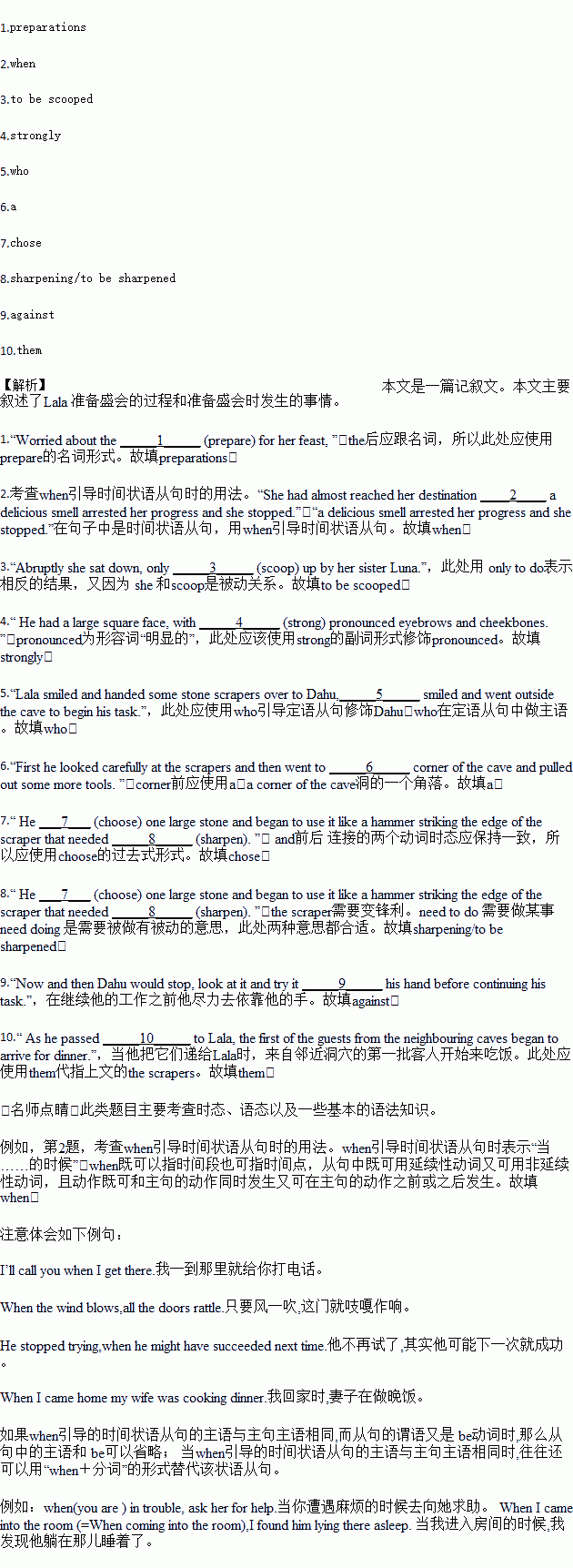题目内容
Worried about the 1. (prepare) for her feast, Lala quickly turned for home with her collection of nuts, melons, and other fruit. She had almost reached her destination 2. a delicious smell arrested her progress and she stopped. The smell of cooking meat filled the air surrounding her, and her senses became dizzy with hunger. Abruptly she sat down, only 3. (scoop) up by her sister Luna. Lala smiled with relief.
Just then Dahu, her husband, came up behind her. He had a large square face, with 4. (strong) pronounced eyebrows and cheekbones. Over his shoulder he carried several fish and some pieces of wood under his arm. Lala smiled and handed some stone scrapers over to Dahu,5. smiled and went outside the cave to begin his task.
First he looked carefully at the scrapers and then went to 6. corner of the cave and pulled out some more tools. He 7. (choose) one large stone and began to use it like a hammer striking the edge of the scraper that needed 8. (sharpen). Now and then Dahu would stop, look at it and try it 9. his hand before continuing his task. He stopped when he felt the scrapers were sharp enough to cut up the meat and scrape the fish. As he passed 10. to Lala, the first of the guests from the neighbouring caves began to arrive for dinner.
 激活思维优加课堂系列答案
激活思维优加课堂系列答案 活力试卷系列答案
活力试卷系列答案

 ape.
ape.